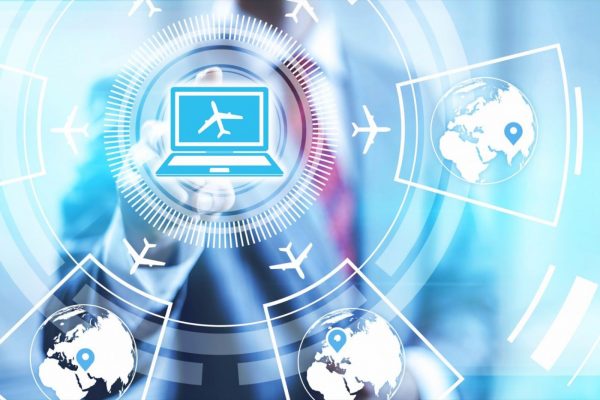WARSAW, 17 October 2019: The International Air Transport Association called on governments and industry to work together to make the best use of modern technology to put the passenger at the centre of the journey and to achieve greater efficiency from infrastructure.
The call came during the opening address by IATA’s Director General and CEO Alexandre de Juniac, at the IATA Global Airport and Passenger Symposium (GAPS) in Warsaw.

Passenger First Approach
Technology options should focus on what the passenger wants. The 2019 IATA Global Passenger Survey noted strong preferences by travellers for technology to enable them to track their baggage in real-time and to expedite their journey through the various airport processes.
The industry has solutions for both these passenger expectations—the One ID initiative, and RFID for baggage tracking. Both need the support of stakeholders, including governments.
IATA’s One ID initiative is helping the industry to transition towards a day when passengers can move from airport curb to gate using a single biometric travel token such as a face, fingerprint or iris scan.
“Biometric technology has the power to transform the passenger experience. Airlines are strongly behind the One ID initiative. The priority now is ensuring there is regulation in place to support the vision of a paperless travel experience that will also ensure that their data is well protected,” said de Juniac.
On baggage, airlines and airports are working together to implement tracking at key journey points, such as loading onto and off-of aircraft (Resolution 753). In June, airlines committed to the global deployment of Radio Frequency Identification (RFID) for baggage tracking.
“Implementation of RFID has seen some good progress, especially in China, where the technology has been thoroughly embraced. In Europe, several airlines and airports are successfully working together to introduce RFID, notably Air France at Charles de Gaulle Airport in Paris. The industry needs to be reminded that in addition to meeting our customers’ expectations, implementation of RFID will help reduce the USD2.4 billion cost to airlines from mishandled bags,” said de Juniac.
Managing Climate Change
“Airlines have long recognized sustainability as key to our license to grow and spread the benefits of global connectivity, benefits which are linked to 15 of the 17 UN Sustainable Development Goals,” said de Juniac.
For over a decade, the industry has had a target to cap emissions from 2020. This goal is secured by the Carbon Offsetting and Reduction Scheme for International Aviation (CORSIA) which was agreed at ICAO in 2016 and reaffirmed at ICAO’s 40th Assembly earlier this month.
By 2050 the industry target is to cut net CO2 to half of 2005 levels. Already emissions from the average journey are half what they were in 1990. Sustainable aviation fuels (SAF) offer the biggest and most practical opportunity to cut carbon. But governments must develop a supportive policy framework to realize the potential of SAF.
Infrastructure
Developing infrastructure that can cope with future demand, without relying on ever-bigger airports, is essential. In cooperation with Airports Council International (ACI), the NEXTT (New Experience Travel Technologies) initiative explores important changes in technology and processes to improve operational efficiency and customer experience.
Among its 11 workstreams, NEXTT is examining several options, including off-site processing, which could reduce or even eliminate queues, the use of artificial intelligence to more efficiently use space and resources and improving data sharing among stakeholders to enhance efficiency.
“Accommodating growth by building bigger and bigger airports will be challenging from a public policy perspective. NEXTT provides a major opportunity to focus on using the latest industry technology standards for a sustainable future. We look forward to seeing Poland take a leadership role in delivering the NEXTT vision with the construction of Warsaw’s new airport- Solidarity Transport Hub. It’s the European Union’s first greenfield airport in over a decade,” said de Juniac.






